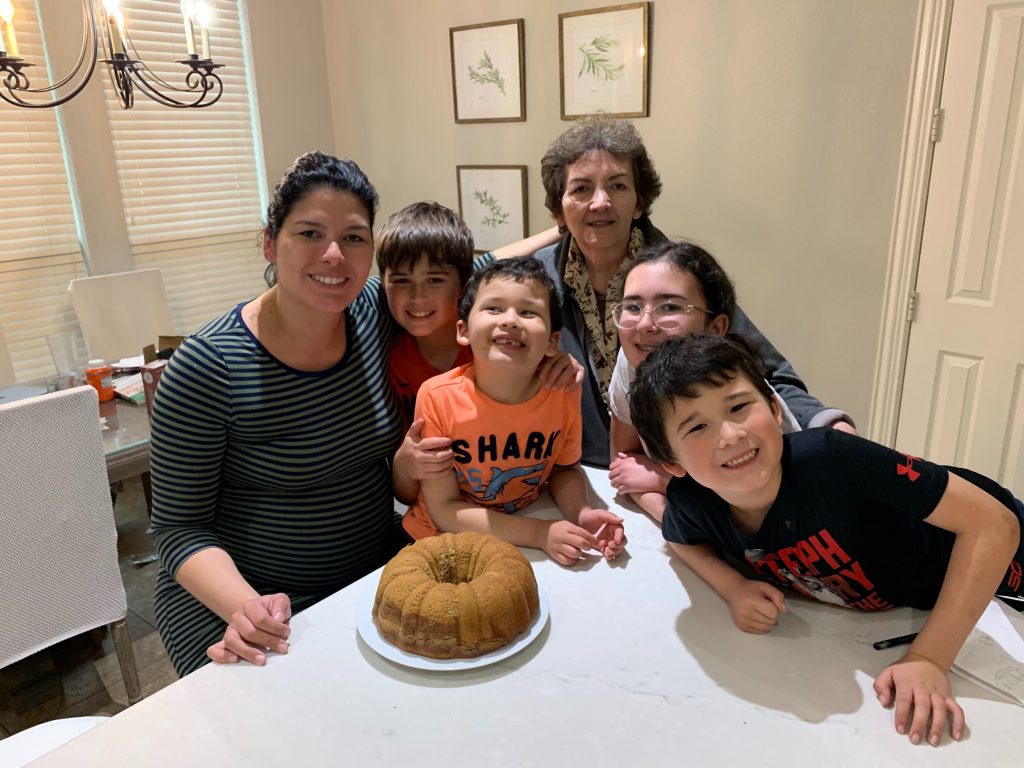 In a series called My Hot Mess, inspired by the Wall Street Journal, we’ll speak to communicators around the globe about the things they’re doing right now to get through this hot mess we call life.
In a series called My Hot Mess, inspired by the Wall Street Journal, we’ll speak to communicators around the globe about the things they’re doing right now to get through this hot mess we call life.
Today we talk to Scott Baradell about how he’s coping during a pandemic. Check back every Friday to learn about a new victim communicator and how they’re coping during this crazy time.
No Time for Lemonade, Just Eat the Lemons
My six-year-old son Jack loves nothing more than to bite into a big fresh lemon and eat the entire thing.
Just ask him.
“Daddy, can I have that lemon in the refrigerator?”
“Honey, it’s very sour. You won’t like it.”
“Yes I will!”
“Jack, we had this same conversation last week. I gave you the lemon and you didn’t like it and we had to throw it away…remember?”
“No, I did like it. I ate it. Can I please just have it? I promise I’ll eat it.”
So I shrug my shoulders, break down and give it to him.
Jack bites into the lemon and immediately gives me this surprised little look that says:
“Daddy, how could you have betrayed me?”
I put some cinnamon and sugar on Jack’s lemon to smooth things over till the next time. And there will be a next time.
That pretty much sums up life for me during COVID-19.
I get lemons thrown at me daily—a 25-person business trying to keep it together, a household of seven with an eighth on the way next month, a home-office setup that alternates between the movie room and the bathtub.
I ain’t got time to make lemonade, either.
A little cinnamon and sugar will have to do.
Keeping Calm for Others
I deal with lemons pretty well because I am by nature a Type B person. Things don’t faze me too much. When they do, I am fortunate to have folks around me to help me maintain my composure and focus on staying positive.
I’ve had my moments: I’ve blasted out some ill-advised rants to the team on Slack that I wish I hadn’t, and I’ve yelled at the kids a bit more than usual.
What’s helped me is that I am grounded in a clear understanding of my role as a business owner and father.
I know the most important thing I can do—for my Idea Grove family and for my family at home—is to convey that everything will be OK, and then to follow up on that promise by doing everything I can to make it reality.
It gives me a sense of calm and a sense of purpose.
Maintaining a Growth Mindset
Like most of us, I’ve gone through some things in my life.
My best friend died in an accident when he was 35.
My wife, and the mother of my oldest two children, died of a brain tumor.
I had to try to raise two children under the age of three on my own for a time when I was trying to manage a small business.
Like COVID-19, these are traumas that you can obsess over and orbit around endlessly—or they are challenges you can overcome to help move forward.
As the Japanese poet Kenji Miyazawa put it:
“We must embrace pain and burn it as fuel for our journey.”
I’ve found in my life that you can never accomplish anything by living in fear.
That means you must adopt a growth mindset and seek out opportunity in every challenge.
We have held onto the majority of our clients.
We are attracting new clients in in-demand B2B tech sectors such as collaboration and e-learning software.
My strongly held belief is that Idea Grove is going to come out of this crisis stronger than ever before.
That’s the only way I know how to lead.
Nurturing the Team’s Connective Tissue
Everyone’s been writing about their remote work experiences—whether to use Zoom or Webex, whether Slack helps or hinders productivity, and so forth.
We use Zoom and Slack and swear by them.
But beyond deploying the necessary tools, we have learned over time that a remote work environment can only be successful when people trust one another.
It’s trust, not tools, that is an organization’s connective tissue.
If trust within your company is weak, the current crisis will show all the cracks.
If it’s strong, it can make your team and work product stronger.
We work to build trust through transparency—regarding our finances, our challenges, our future.
Weekly staff meetings, virtual happy hours, one-on-ones with managers—these are the routines that sustain and nurture us.
I can’t overstate their value.
Making Family Time for Cooking and Homeschooling
When I offer to prepare lunch or dinner, my weary, nine-months-pregnant wife looks at me with a strange combination of love and—for lack of a better word—suspicion.
As in:
“Why the hell are you offering to cook again? You’re weird.”
But I do like to cook, and my 12-year-old daughter Juliet does, as well.
As I write this, Juliet is preparing lunch for the family because my wife is taking a nap and I have a conference call.
She’s pretty good at it.
I find preparing meals creative, relaxing, and uniquely satisfying.
The instant gratification of people enjoying the food you make for them is a great feeling.
I also have been doing European history lessons with my older kids every day, using John Green’s Crash Course series on YouTube.
I don’t envy the job of teachers, but it’s been fun.
And there’s nothing like history to put things in perspective: COVID-19 is bad, but the Black Death killed 60 percent of Europe.
Another reason to count your blessings, not your problems.